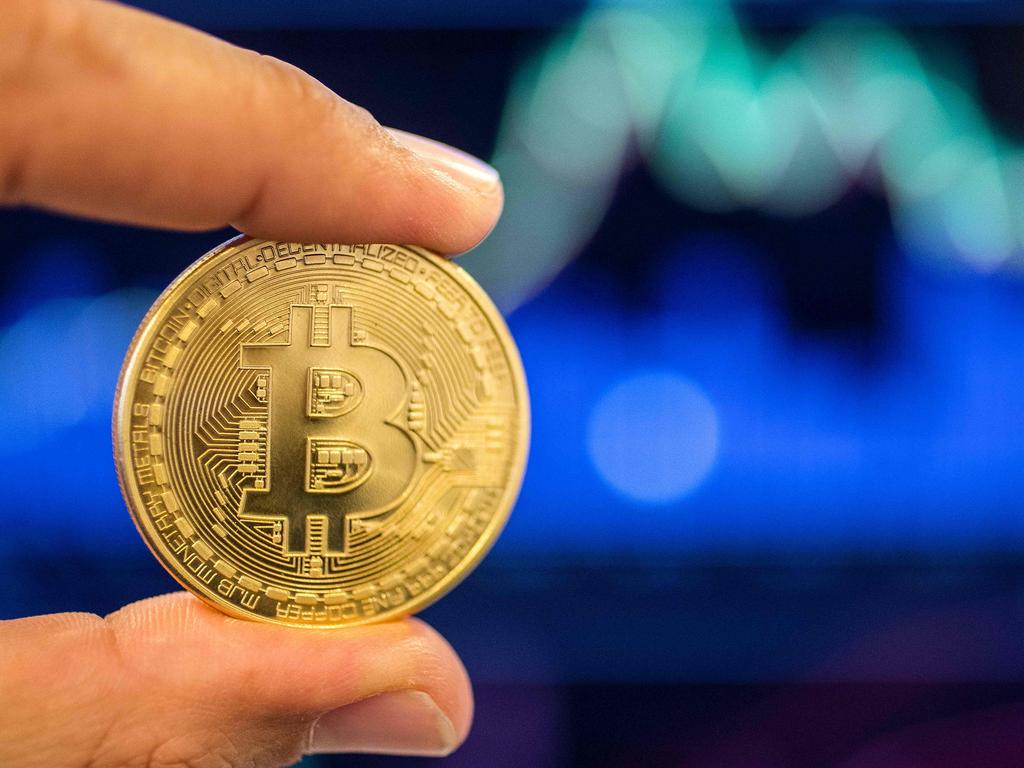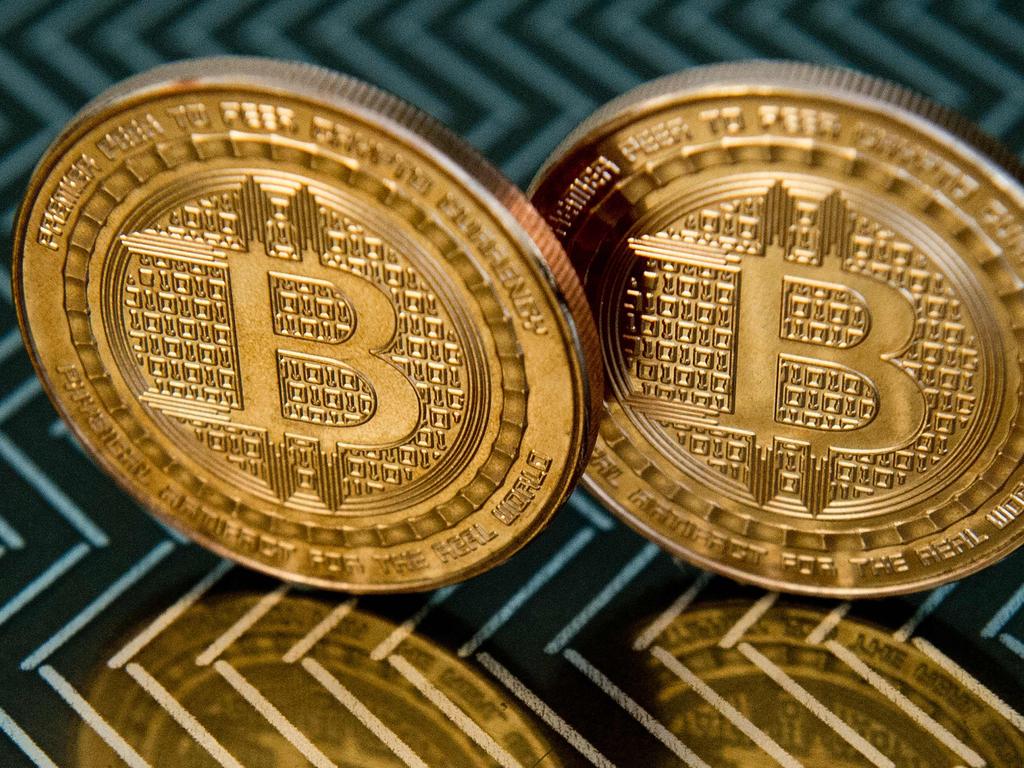Bitcoin is soaring to fresh highs, but is it another mug’s game?

Last Monday, as the price of bitcoin climbed back towards its record high, Maisie Williams, who plays Arya Stark in the hit television series, asked her 2.7 million followers: “Should I go long on bitcoin?” Most of the 900,000 who voted said “no”, but she said the next day that she had bought some anyway.
On Thursday, Davy, the Irish broker, predicted that one bitcoin would be worth between $US200,000 and $US600,000 ($275,000-$820,000) by 2040. Earlier, a leaked report from Citigroup suggested bitcoin would hit $US318,000 by the end of next year.
The world’s most popular digital coin has been on a tear since the start of the month, climbing as high as $US18,730.47 on Friday to put its gain for the year at more than 150 per cent. It is within touching distance of its all-time high of $US19,600, set in December 2017. That came after a buying frenzy compared with the “tulip mania” of the 17th century, when the price of tulip bulbs jumped to astronomical levels before crashing. Indeed, the price of bitcoin climbed by 1375 per cent in 2017 before losing half its value in a month.
Bitcoin, like other digital currencies, exists only as strings of computer code and has no physical form. It was launched in 2008 by Satoshi Nakamoto, a secretive software developer whose true identity has never been uncovered.

It was intended to be used as a form of decentralised currency, out of the reach of central banks and governments. However, its main use has been speculative trading. More recently, it has been touted by some as a safe-haven asset in times of market turmoil.
“Bitcoin is the king of the crypto-jungle, a technology prodigy with a dominant market position,” said Roland French, an analyst at Davy.
“Its technological and monetary properties arguably rank it senior to gold as a non-sovereign store of value. Recent corporate investment is also helping to legitimise bitcoin’s use case.
“We view bitcoin through the lens of traditional technology adoption curves and believe it remains in an early adoption phase.”
As ever, there are more theories than explanations for the recent rally. One is that mainstream adoption is buoying the price. Last month, PayPal, the digital payments group, said it would allow customers to hold bitcoin and other digital currencies and would use them for transactions next year.
Fidelity, the American money manager, launched a bitcoin fund this summer. Traditional financial exchanges, such as CME Group, have created bitcoin options and derivatives markets. This rubber-stamping has attracted institutional and lay investors, further pushing up the price.
According to Deutsche Bank, investors have turned from gold to bitcoin for a hedge during the market turmoil caused by the pandemic.
A third theory, and perhaps the most powerful, is that big holders — known as bitcoin “whales” — are making moves in the market. Ninety-five per cent of bitcoins are held by 2 per cent of owners, according to Flipside Crypto, a researcher. Because the bitcoin market is highly illiquid, the whales have outsized power to move the price.
As was the case in 2017, senior financiers are unimpressed.
“We’re believers in cryptocurrency, properly regulated and properly backed,” said Jamie Dimon, chief executive of JPMorgan, America’s largest bank, adding that “bitcoin is kind of different, and that’s not my cup of tea.”
Ray Dalio, the boss of Bridgewater Associates, the world’s largest hedge fund, says that bitcoin is of little use as a currency because it lacks broad adoption and a poor store of wealth because it is too volatile.
“If it becomes successful enough to compete and be threatening enough to currencies that governments control, the governments will outlaw it and make it too dangerous to use,” he said. Still, he admitted that he “might be missing something”.
Minor bitcoin celebrities believe that he is.
“If I had a house, I would sell it and buy bitcoin because I know that in 10 years, I can buy 10 houses,” said Carl Martin, a Swedish digital currency trader. He told his followers on YouTube on Friday that bitcoin would climb to $US19,000 “within the next 24 hours”.
Lark Davis, a New Zealand-based investor, promised his YouTube followers that if they bought the right “alt coins”, digital currencies outside of bitcoin and other mainstream coins, “you will make absolutely life-changing money”.
Only time will tell if the bulls are right and bitcoin’s newest celebrity investors are made winners or losers.
For now, though — and if she did, indeed, buy bitcoin on Tuesday — Williams will have notched up a paper profit of as much as 13 per cent already.






When a Game of Thrones star asks Twitter whether or not to buy bitcoin and analysts attach astronomical prices to the digital currency, you know that the craze of 2017 has returned.